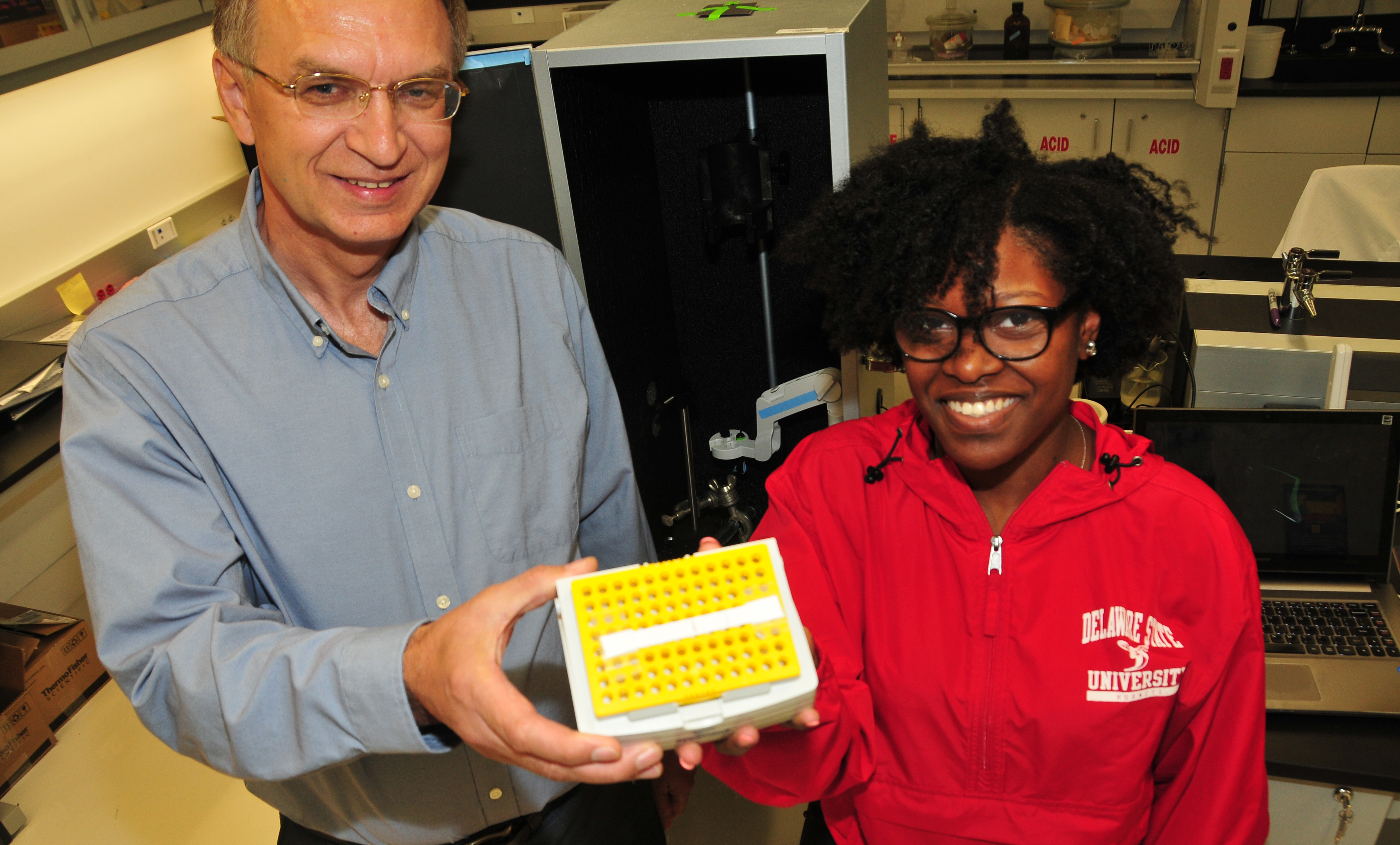
DSU Scientist Creates Intellectual Property to help pet owners
Dr. Yuri Markushin, a DSU physics assistant research scientist, has developed a new intellectual property that will help to earlier diagnose diseases in animals – and save pet owners some money by determining whether a sickness is in the early or late stages.
Dr. Markushin has obtained a provisional patent for test strips kits he has developed, which can analyze a urine test and provide diagnosis of diseases. Now he is hoping to obtain financial support from the National Science Foundation (NSF) to effectively market the kits to pet owners, pet stores and animal hospitals.
Toward that goal, Dr. Markushin received a $3,000 grant from the University of Delaware, which is administering grant money from the NSF to launch a market survey. If he can prove through the survey that the kits have significant market potential, Dr. Markushin may be eligible for a $50,000 grant from the NSF to help implement the marketing of the product.
The test strip has been designed to determine if dogs suffer from Immune Mediated Hemolytic Anemia (IMHA) or from parasitic diseases. It is believed that this diagnostic tool could potentially save pet owners veterinarian costs.
“There are no reliable tests for IMHA right now,” Dr. Markushin said. “Only the process of excluding other diseases has been able to lead to an IMHA diagnosis.”
Dr. Melissa Harrington, director of the DSU’s Delaware Institute for Science and Technology, said Dr. Markushin’s Test Strip Kits is the first DSU product to take advantage of the NSF’s Innovative Corps (I-Corps) Program.
“Through I-Corps, the NSF wants to foster technology transfers from academic institutions into the marketplace,” Dr. Harrington said. “The idea is to help science professors who invent products to start small companies to market the product, and/or license the product to another company.”
She said UD has developed a Horn Entrepreneurship I-Corp Site on its campus and has become a central resource for innovation and marketing of technological products. That has led to this partnership between UD and DSU.
“This partnership will provide a unique and actionable mechanism to promote innovation and entrepreneurship at both universities and therefore across the entire state of Delaware,” Dr. Harrington said. “The partnership with UD’s I-Corps site will allow DSU to develop its entrepreneurship education programs to provide training and support for students and faculty working on projects with the potential to be transitioned into the marketplace.”
She added that over the long term, the partnership would help bring together faculty from DSU’s College of Business and the College of Mathematics, Natural Sciences and Technology to integrate more entrepreneurship training into curricula.
Dr. Markushin, the academic lead on the project, is working with Simone Johnson, the entrepreneur lead, on the market survey. Ms. Simone is a junior engineering student.
“I received good practice on how to talk to people and show a product,” Ms. Simone said.
The preliminary findings of their market survey work indicate that the Test Strip Kits have significant market potential, Dr. Markushin said, adding that if he is able to get NSF funding to continue the project, he would use it to develop a prototype.
Dr. Harrington, who brokered the partnership with UD over the past summer, said this represents an opportunity for other DSU scientists and students, as the UD I-Corps site has additional marketing survey grants available to award.

